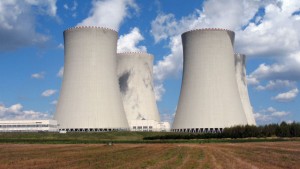Home » Commentary » Opinion » The church and fossil fuels
· Ideas@TheCentre
 Divestment from fossil fuels has become the moral weapon of choice in the armoury of ecclesiastical environmental activists who want to end coal production in Australia.
Divestment from fossil fuels has become the moral weapon of choice in the armoury of ecclesiastical environmental activists who want to end coal production in Australia.
Pope Francis’ recent papal encyclical Laudato Si identified the intensive use of fossil fuels as a major aggravating factor in anthropogenic global warming.
Now Sydney Anglican diocese’s investment arm, the $262 million Glebe Administration Board (GAB), wants to divest from fossil fuels altogether or set targets for “carbon reduction” across its entire portfolio.
But this means choosing to ignore coal investment’s potential economic benefits – and its benefits to the world’s poorer emerging populations.
Christian investment funds should certainly think carefully about where they put their money. There is no godly reason why they should invest in the gambling industry.
But there is no moral equivalence between investing in pokies and investing in coal. Gambling never did anyone any good, but the same can’t be said about coal.
Oil giant BP reports that use of coal has grown four times faster than renewables and 2.8 times faster than oil over the past decade. Investment interest in fossil fuels and the supply of cheap energy is booming.
Coal has helped lift the living standards of hundreds of millions of the world’s poor by providing a cheap source of energy that has a huge, economy-wide impact.
Coal also happens to be Australia’s second most valuable export after iron ore and supplies the fuel for our own electricity networks.
Divesting from fossil fuels may be fashionable but it is also immoral. Quite apart from putting domestic jobs at risk, ‘ethical’ attacks on the coal industry threaten the livelihoods of hundreds of millions of people in developing economies.
The Sydney GAB fund managers will be the latest to jump with their misplaced ideals on to the bandwagon of climate correctness when they take their revised policy to the diocese’s Standing Committee later in the year for endorsement.
A truly ethical investment policy aims to help the world’s poor. Instead, the flawed reasoning of environmental activism threatens only real economic and moral harm.
The church and fossil fuels